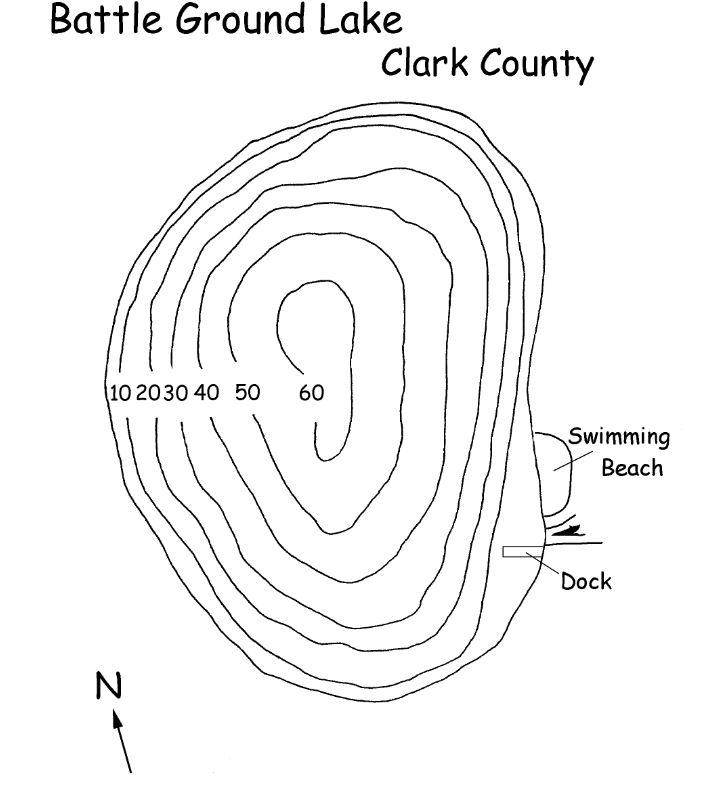Battle Ground Lake is known as a crater lake. Initially Battle Ground was known as a popular crappie and bass lake. Rainbow Trout have been stocked in the lake since the late 1930s and have become a very successful fishery for anglers.
Located inside Battle Ground Lake State Park about two miles northwest of the city of Battle Ground, off of Heisson Road. Thousands of Rainbow Trout and Coastal Cutthroat Trout are stocked during late winter through spring.
The lake offers limited bank access and a dock (fee required) A Discover Pass is necessary to park at this lake. There is a small boat ramp, no combustion motors allowed. The Discover Pass is not necessary if staying in a registered campsite. Grass carp have been stocked in this lake. Fishing for or retaining grass carp is prohibited. Photo courtesy of Nick Mortensen.
Two-pole fishing is allowed
Shoreline access: Good - Limited shore access.
Species you might catch
- Black crappie
- Bluegill
- Brown bullhead
- Coastal cutthroat trout (resident)
- Largemouth bass
- Pumpkinseed Sunfish
- Rainbow trout
- Warmouth
- Triploid Grass Carp
Lake information
County: Clark
Acreage: 25.40 ac.
Elevation: 509 ft.
Center: 45.804756, -122.494045
Open in Google Maps
Catchable fish plants
| Stock Date | Species | Number Released | Number of Fish Per Pound | Facility |
|---|---|---|---|---|
| May 10, 2000 | Rainbow | 2,000 | 2 | SKAMANIA HATCHERY |
| May 10, 2000 | Rainbow | 2,114 | 2.8 | GOLDENDALE HATCHERY |
| Apr 27, 2000 | Rainbow | 5,894 | 1.25 | VANCOUVER HATCHERY |
| Apr 25, 2000 | Rainbow | 3,190 | 2.9 | GOLDENDALE HATCHERY |
| Apr 19, 2000 | Eastern Brook Trout | 5,990 | 2.5 | VANCOUVER HATCHERY |
| Mar 27, 2000 | Rainbow | 4,001 | 2.5 | SKAMANIA HATCHERY |
| Feb 25, 2000 | Rainbow | 7,505 | 1.6 | VANCOUVER HATCHERY |
| Dec 27, 1999 | Rainbow | 77 | 0.1 | GOLDENDALE HATCHERY |
| Dec 27, 1999 | Rainbow | 83 | 0.2 | GOLDENDALE HATCHERY |
| Jul 2, 1999 | Rainbow | 2,508 | 2.4 | GOLDENDALE HATCHERY |
Fishing prospects calendar
Rainbow trout
Coastal cutthroat trout (resident)
Largemouth bass
Black crappie
Bluegill
Pumpkinseed Sunfish
Brown bullhead
Photos



